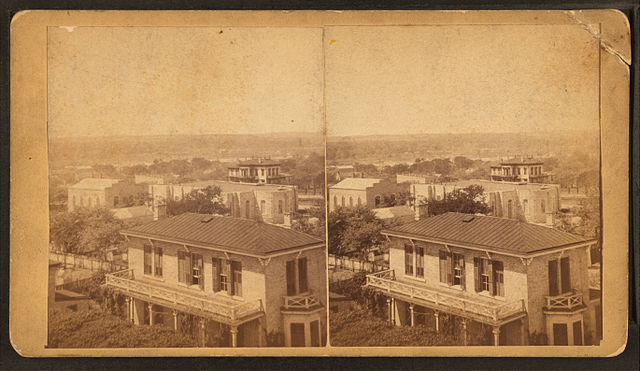This novel gave me a case of déjà vu. It’s almost a mix of
two other novels I read recently. Take Larry Sweazy’s Austin, Texas, from The Coyote Tracker and add to it the central characters and a nasty villain from James Best’s The Return. You get something a lot like Reese’s novel about a private detective after an international counterfeiter.
Plot. This was one
of ten Reese novels featuring detective Jefferson Hewitt, who is one of a pair
of partners running a bonding and indemnity company based in Cheyenne. Hewitt
does all the legwork while his partner, Conrad Meuse (whom we never meet), runs
the bonding end of the business. They communicate by telegrams so cryptically
worded you’re hardly able to make sense of them.
The plot is complicated and not easily summed up in a few
words. The villain, a Fantômas-style count from some East European backwater,
has dreamed up a scheme to throw the world’s monetary systems into chaos. He is
threatening to swamp them with a truckload of phony $50 gold pieces, taking down
governments along with their currencies.
 |
| Austin, Texas, c1885 |
When the pieces start showing up and a man is killed over
them, Hewitt gets interested. He guesses that someone somewhere has been stung
by the counterfeiter and needs help that he’s willing to pay good money for.
Tracing the fake coins to a rancher and his son outside San Antonio, Hewitt
begins putting the clues together.
His path quickly crosses that of three other
investigators, all of them converging in Austin, and each of them, as it turns
out, on the trail of the same counterfeiter. The four join up—but only after
Hewitt gets a promise of $30,000 from the Treasury Department if he can deliver
the crook, the fake coins, and the die used to create them.
 |
| Gold Eagle |
One of the investigators is a woman, Mrs. Chaney, the
bored widow of a Texas rancher. She’s an amateur, but Hewitt thinks she has
promise, and the two become a duo. Reluctantly working with them is a railroad
detective, Tommy Quillen, and Dennis McGucken of the Treasury Department.
Character. Hewitt
is a curious creation, not exactly a warmly congenial man. At one time a
Pinkerton detective, he’s now self-employed and always calculating the
profitability of the cases he takes on. He is adept at sizing up people and situations,
drives a hard bargain, and has killed four men in his line of work.
He thinks of criminals as having one basic weakness. They break the
law because they don’t believe they can compete honestly with people who play
by the rules. A crook may act like a genius or a mastermind, but mostly it’s
bluff—and a big ego. As clever and dangerous as the count behaves, Hewitt knows
he can outsmart the man. Of course, Hewitt is plenty of bluff and well-fed ego
himself.
Described as “sure of himself, personable, convincing,”
he’s also a masseur, a graphic artist, a master of regional accents and a few
foreign languages, and likes to gamble at cards for high stakes. He’s
unmarried.
Mrs. Chaney is steely and fearless, hired first by Quillen
to spy on Hewitt, who immediately suspects her and tricks her into blowing her
own cover. She sees that he’s far more clever and seasoned and wants him for a
mentor. Then she falls for him, and by novel’s end, the two have worked out an
arrangement that might well be called friends with benefits.
 |
| John Reese |
Wrapping up. Reese
generally plays ironically with western conventions in his novels. Much of this
novel, however, is played as straight crime detection. His detective hero could
well be influenced by the PIs of hard-boiled fiction. He’s coolly intelligent,
unsentimental, and not in the market for a long-term relationship.
And he’s not motivated by altruism or high moral purpose.
He would prevent, if he could, the collapse of U.S. currency, but what he mostly
cares about is his own money. During the investigation, he worries that it
won’t turn out to be worth the time and expense, and in the end, he has to get rough
with a client who tries to squid out of paying his fee. But when all is said
and done, Hewitt and his partners make out pretty well. And that’s good enough.
Texas Gold is
currently available in hardcover and paperback at AbeBooks. For more of
Friday’s Forgotten Books, click on over to Patti Abbot’s blog.
Further reading:
BITS reviews of other John Reese novels:
Photo credits:
Author’s photo, goodreads.com
Wikimedia Commons
Coming up: Glossary of frontier fiction

Read this just a few months ago, enjoyed it.
ReplyDeleteThe Pinkertons surely provide lots of fodder for characters and story ideas. I used one myself.
ReplyDeleteThe Pinkertons are sort of the Old West version of the FBI. They can show up on either side of the plot in a novel.
Delete